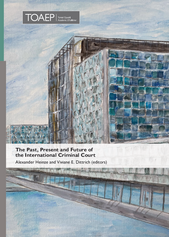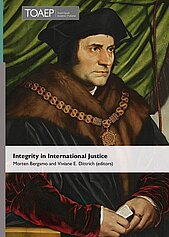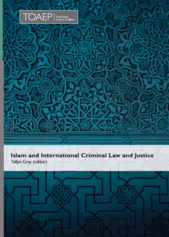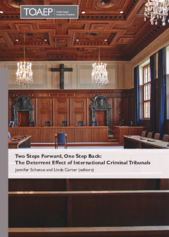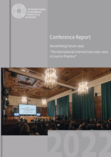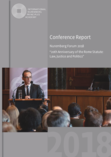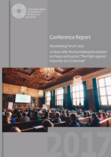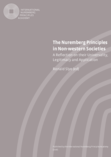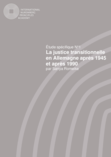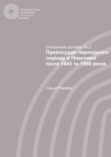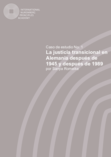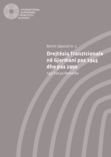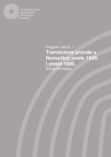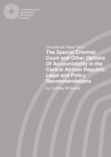Promoting scholarship and research is an essential pillar of the Academy’s work, hence publishing holds a central role. Our publications bring together interdisciplinary expertise and combine the perspectives of practitioners and scholars to explore the history, current developments and key topics of international criminal law. We publish edited volumes, books, conference reports and a series of occasional papers. We count leading scholars as well as practitioners, including current and past principals of international courts and tribunals, amongst the contributors to Academy publications. Academy staff also regularly publish in peer-reviewed journals, edited volumes and specialised international law fora.
Our publications contribute to current debates and scholarship and act as a conduit for leading practitioners to reflect on topical developments, challenges and lessons learned. These reflections further a deeper and nuanced understanding of the past and of contemporary institutions and proceedings, present complexities and debates.
The Nuremberg Academy´s publications offer state of the art and open access scholarship on the history, current developments and future of international criminal law.
Promoting scholarship and research is an essential part of the Academy’s work. All our publications bring together interdisciplinary expertise and combine the perspectives of practitioners and scholars to explore the law´s developments. We publish edited volumes, books, conference reports and occasional papers showcasing innovations and contributing to current debates and scholarship. Contributors to our publications include leading scholars as well as current and past principals of international courts and tribunals.
The Academy´s publications also advance public understanding of international criminal law´s possibilities and limitations. The highly charged public discourse appears increasingly prone to conventional wisdom, clichés, or even disinformation and ill-informed accounts. There is thus an ever-increasing need for timely, grounded and lucid publications being available on an open access basis. It is this acute necessity that the Nuremberg Academy is responding to by ensuring that our publications are fully and freely accessible. We are committed to open access publishing to ensure that all interested persons can access and use our publications and resources as freely available electronic versions. The cost-free availability of publications and of learning and working tools facilitates the dissemination of international law, proper access to law, and thereby access to justice.
Books – Nuremberg Academy Series
The Nuremberg Academy Series, a book publication series of the International Nuremberg Principles Academy, was launched in April 2017. The Series Editor is Dr. Viviane Dittrich. The Series is published by the Torkel Opsahl Academic EPublisher (TOAEP). The Academy and the Centre for International Law Research and Policy (CILRAP) co-operate on the promotion of high-quality open access publications in international law.
The Series includes work that is interdisciplinary and brings together academics and practitioners focused on practical and innovative applications of international criminal law. The Series seeks to cover relevant and topical areas that are under-researched or require renewed attention. Grounded in the legacy of the Nuremberg Principles – the foundation The Nuremberg Academy Series, a book publication series of the International Nuremberg Principles Academy, was launched in April 2017. The Series Editor is Dr. Viviane Dittrich. The Series is published by the Torkel Opsahl Academic EPublisher (TOAEP). The Academy and the Centre for International Law Research and Policy (CILRAP) co-operate on the promotion of high-quality open access publications in international law.

